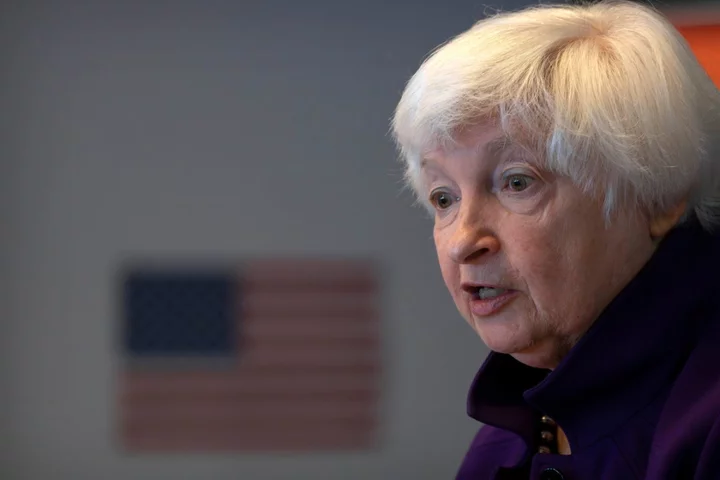By Chris Taylor
If you ever need advice about breaking up with your bank, just ask Bruno J. Navarro. He has done it three times.
The technology marketer from Maplewood, New Jersey, cut ties for a variety of reasons, such as increased fees and low interest rates on savings. Sometimes the process is straightforward, sometimes it’s trickier – but Navarro has no qualms about packing up his financial accounts and heading to another institution.
“I'd say just go ahead and jump in,” says Navarro, 51, who has left banks like Chase, TD and Capital One and currently uses a credit union. “It might be a few minutes of pain to fill out forms, but I’m much happier having found financial institutions with customer-friendly policies and practices.”
Navarro isn’t alone in switching banks. In fact, 79% of U.S. consumers say they would change banks if they found one to better meet their needs, according to a 2023 poll by financial site The Motley Fool Ascent.
The main problem for breaker-uppers: “Banking relationships are sticky,” says Erika Safran, a financial planner in New York City. Especially these days: Maybe you get paid by direct deposit. Maybe your monthly bills are set up to come out of those accounts automatically. Your checkbooks, your personal loans, your credit cards – all could be tied to one institution, and all interlinked.
In that way, breaking up with your bank can almost feel like the end of a personal relationship: the history, the entanglements, the desire for something better. As the old Neil Sedaka song goes: Breaking up is hard to do.
But it can be done – whether because of bad customer service, a lack of brick-and-mortar branches, or annoying fees. A few ideas about how to manage a bank breakup:
ONLY MOVE SOME ACCOUNTS
Let’s take a very common scenario these days: Your bank is offering almost zilch on savings, while other online banks are offering around 5%.
There is no law that says you have to leave your bank to take advantage of that difference. Consider having accounts at two institutions. “It doesn't have to be painful,” says Matt Stephens, a financial adviser in Wilmington, North Carolina.
“Most of the hassle is from switching checking accounts, but most of the benefit comes from switching savings accounts," Stephens says. "One strategy is to leave your checking account where it is, but move your savings account to a bank with a higher interest rate.”
GO THROUGH ALL YOUR AUTOMATIC DEBITS AND CREDITS
Much of our financial lives are automated these days, which is great – paychecks, utility payments, streaming subscriptions and so on.
But that makes switching over that much more complicated. If bills go unpaid because they are linked to defunct accounts, that could disrupt services and damage your credit record.
Advice from Jennifer Bush, a financial planner in San Jose, California: Go through your last few months of bank statements to identify ongoing charges, and contact every one of those companies to switch them over to your new accounts.
As you do so, keep your old account open for a while, just in case there is anything you have missed.
“Once you have confirmed that all direct deposits and automatic payments have been switched, and no new transactions are going to the old bank, then you can close the old account,” Bush says.
COMPARE AND CONTRAST
Often people feel compelled to take action in the heat of the moment – perhaps over anger at an overdraft fee, for example.
But the reality is that another institution may have those same fees. You would be wise to do your due diligence beforehand, and study everything from minimum account balance requirements to ATM charges. To work through those issues and weigh your best options, check out the FDIC’s “Banking Checklist” here.
As a result of comparison shopping, you may even decide to stay put. But information is your friend and finding something better could quite literally mean thousands of dollars in your pocket.
Says Navarro, who is happy, for now, with his current institution: “It doesn’t hurt to shop around and look at interest rates, even if only once a year, or to check out your local credit union to see what you’ve been missing.”
(Editing by Lauren Young and Leslie Adler)









